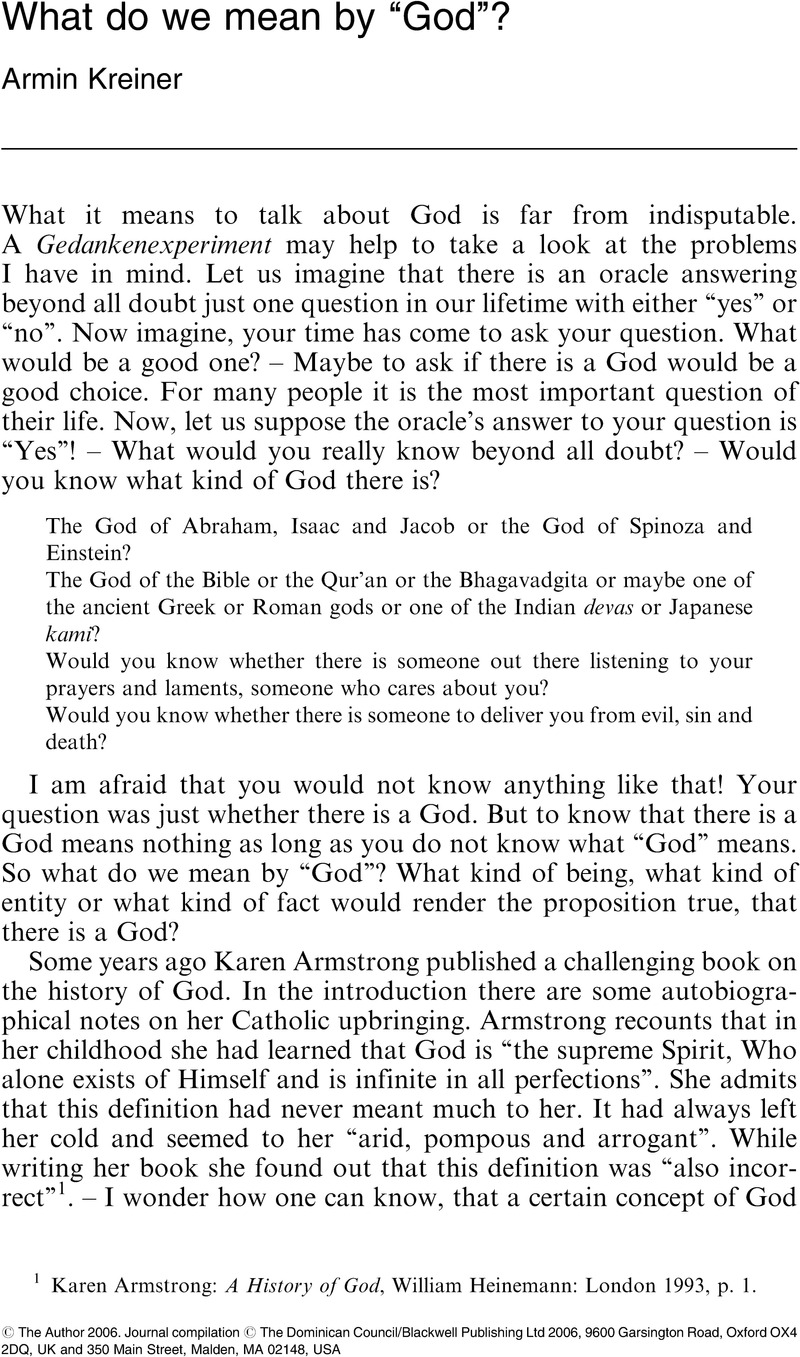No CrossRef data available.
Published online by Cambridge University Press: 01 January 2024

1 Armstrong, Karen: A History of God, William Heinemann: London 1993, p. 1Google Scholar.
2 Cf. Miles, Jack: God: a biography, Simon & Schuster: London 1995Google Scholar.
3 Cf. Ferrucci, Franco: The Life of God: as told by Himself, University of Chicago Press: Chicago-London 1996Google Scholar.
4 Morris, Thomas V.: The Concept of God, Oxford University Press: Oxford 1987, p. 8Google Scholar.
5 Kaufman, Gordon D.: Constructing the Concept of God, in: Steuer, A.D./McClendon, J.W. (ed.), Is God God?, Abingdon: Nashville 1981, p. 111Google Scholar.
6 Yandell, Keith E.: Philosophy of Religion. A Contemporary Introduction, Routledge: London-New York 1999, p. 56Google Scholar
7 Cf.. Christian, W.A.: Meaning and Truth in Religion, Princeton University Press: Princeton 1964, p. 60CrossRefGoogle Scholar.
8 Cf. Morris, Thomas V.: ‘Perfect Being Theology’, in: Nous 21 (1987) 19–30Google Scholar.
9 Miller, Kenneth R.: Finding Darwin's God, Harper Collins: New York 1999, p. 192Google Scholar.
10 Cf. Rescher, Nicholas: Methodological Pragmatism, Basil Blackwell: Oxford 1977, pp. 24–25Google Scholar.
11 Gordon D. Kaufman: Constructing the Concept of God, p. 130.
12 Cf. Morris, Thomas V.: Our Idea of God, University of Notre Dame Press: Notre Dame-London 1991, p. 35Google Scholar.
13 Cf. Nishitani, Keiji: Was ist Religion?, Suhrkamp: Frankfurt 2 1986, 130Google Scholar.
14 Cf. Thomas Aquinas: Summa theologiae, I, q.29, a.3.
15 Cf. Swinburne, Richard: The Coherence of Theism. Revised Edition, Clarendon Press: Oxford 1993CrossRefGoogle Scholar.
16 Gordon D. Kaufman: Constructing the Concept of God, p. 137